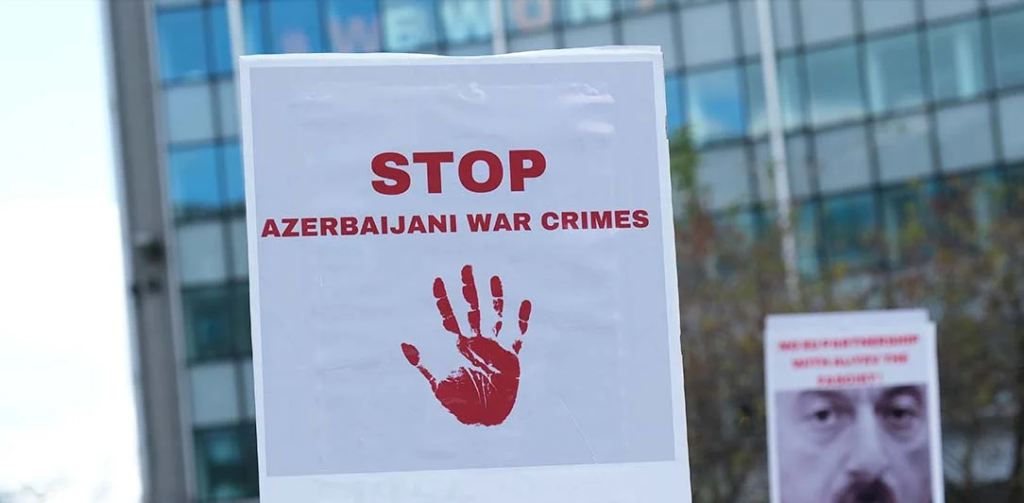The Azerbaijan Sanctions Review Act of 2025: Holding Baku Accountable

The Azerbaijan Sanctions Review Act of 2025 (H.R. 5369), introduced by Rep. Dina Titus (D-NV) with Rep. Gus Bilirakis (R-FL) as a lead cosponsor, seeks to hold Azerbaijani officials accountable for widespread human-rights abuses and war crimes committed against the Armenian population of Artsakh (Nagorno-Karabakh).
Filed in the U.S. House of Representatives on September 15, 2025, the bipartisan legislation directs the U.S. Administration to conduct a formal review of sanctions against Azerbaijani government and military officials responsible for war crimes, corruption, and the forced displacement of over 100,000 Armenians from their historic homeland following Azerbaijan’s 2023 assault on Nagorno-Karabakh.
If enacted, H.R. 5369 would compel the U.S. President to determine, within 180 days, whether specific Azerbaijani officials meet the criteria for sanctions under the Global Magnitsky Human Rights Accountability Act or Section 7031(c) of the State, Foreign Operations and Related Programs Appropriations Act. The bill references dozens of Azerbaijani military and political figures implicated in crimes against civilians, prisoners of war, and detainees.
Currently, the measure has 18 bipartisan cosponsors and is awaiting action in the House Foreign Affairs Committee and the House Judiciary Committee. No markup or vote has yet been scheduled.
The Armenian Council of America (ACA) has strongly endorsed the bill, urging Armenian-American constituents nationwide to contact their Representatives in support. In a recent statement, ACA emphasized that the measure “sends a clear message that impunity for ethnic cleansing, war crimes, and human-rights violations will not be tolerated by the United States.”
H.R. 5369 builds on earlier congressional efforts to hold Azerbaijan accountable, including similar legislation introduced in 2024. By tying U.S. policy directly to accountability standards, the bill would strengthen human-rights enforcement and signal to Baku that its continued aggression and disregard for international law have consequences.
The next steps for the bill include potential committee hearings, a markup session, and a full House vote — followed by Senate consideration. The outcome will depend on whether congressional leaders choose to advance the measure independently or incorporate it into larger foreign-policy or defense legislation later this year.
For the Armenian-American community, H.R. 5369 represents a significant opportunity to align U.S. foreign policy with moral leadership — promoting justice for the victims of Azerbaijan’s aggression and deterring further violence in the South Caucasus.





